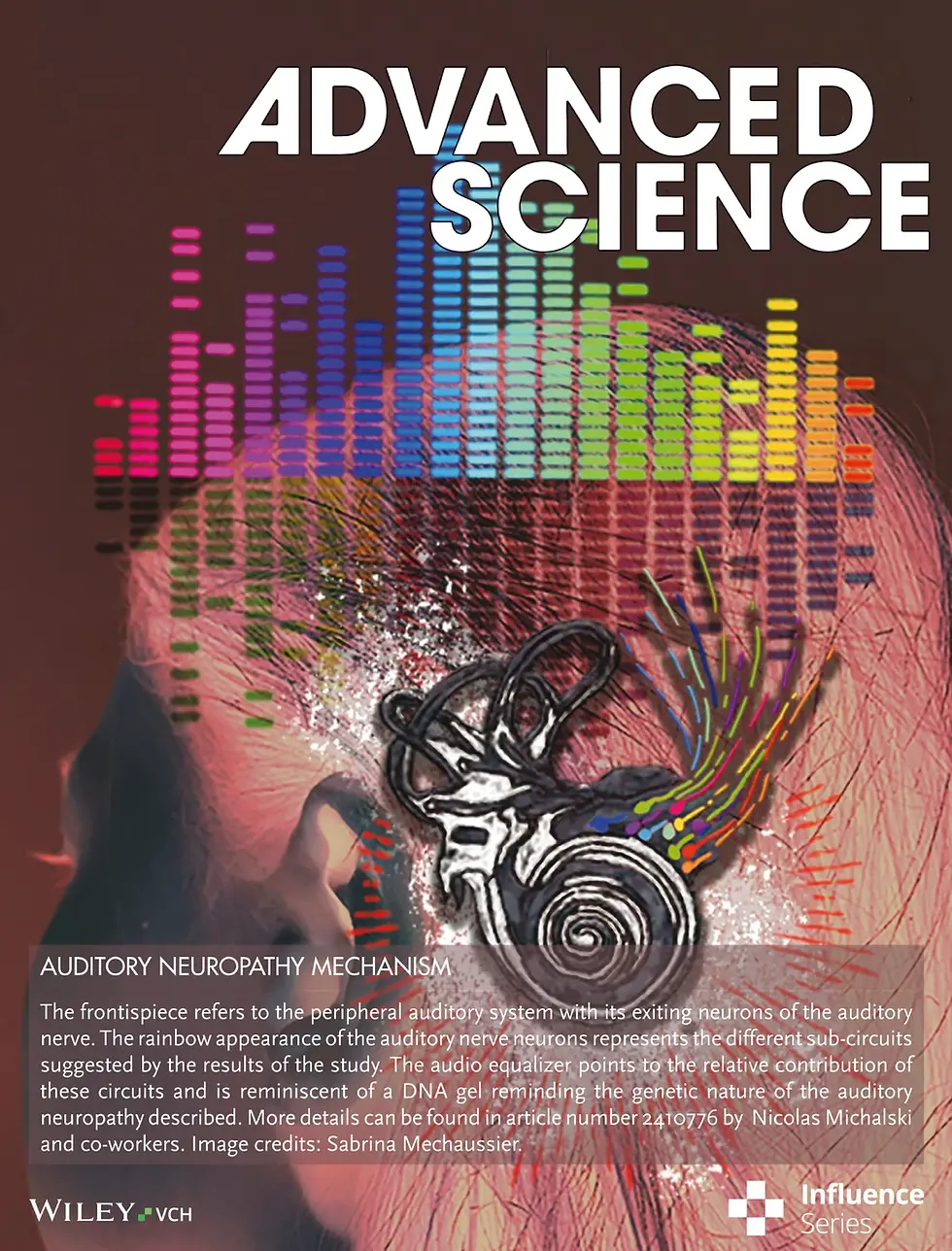Anesthesia modifies sound information processing
- Nov 28, 2024
- 2 min read
Brice Bathellier’s team at the Hearing Institute, center of the Institut Pasteur, has recently shown that the auditory responses of neurons in awake and anesthesia conditions are different.

Hearing starts by the detection of sound waves in the ear. After this crucial step, the sensorial information is transformed into a succession of cerebral circuits which build, step by step, our sound perception.
To study these complex processes that happen into the brain, the traditional experimental approach relies on recordings of the cerebral activity during anesthesia. Even though we don’t have an auditory perception under anesthesia, the brain still reacts to the sound stimulus, and it is easier to control the conditions of sound receptions.
It has been widely postulated that the cerebral activity trained by the perception of sounds under anesthesia is similar to which would take place in the awake state of the brain, particularly at the level of the first circuits processing sound information. This hypothesis has never been verified; it is in fact very difficult to follow the neurons’ activity in the first stages of the auditory system, between the awake and anesthesia state.
With a new experimental methodology, Brice Bathellier’s team at the Hearing Institute tracked the neuronal activity of the first relay of the auditive information: the cochlear nucleus, in both awake and anesthesia states.
These experiences have shown that the neurons’ sound responses are very different between the awake and anesthesia states. The anesthesia strongly alters the cochlear nucleus’ activity in the lack of sound and modifies the neurons’ identities which are going to answer to a given sound. Under anesthesia, the information transmitted by the cochlear nucleus is widely changed which is going to impact the neuronal treatment. This is a key factor in the interpretation of measurements taken under anesthesia. Until recently, it had gone unnoticed because although anesthesia alters the auditory code, it doesn’t affect the amount of information supported by the cochlear nucleus.
New data from Brice Bathellier’s team allows to review the interpretation of data acquired under anesthesia and promote the study of auditory processing under awake conditions. These data also display that the first neuronal stage of auditory information processing is a complex circuit whose dynamics are strongly affected by the pharmacology of anesthesia.
Thereby, they pave the way towards a better understanding of the mechanisms of auditory perception.
This study has been published in the Science Advances’s journal. To read it, click here.



